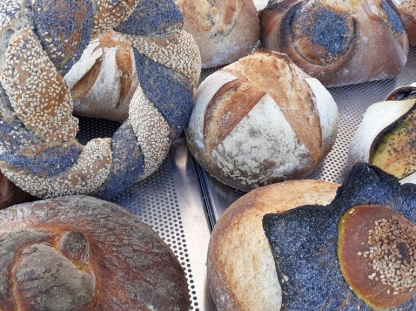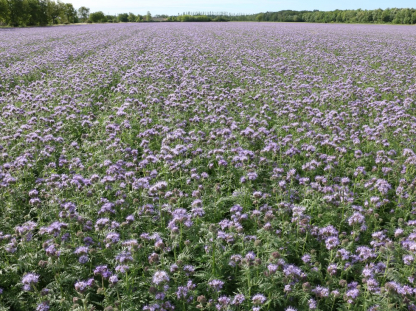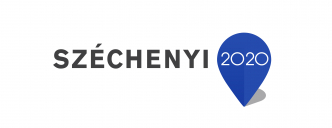III. farmer-miller-baker workshop
Our third farmer-miller-baker workshop has been organized online at the beginning of February 2021.
About 50 participants (mostly farmers and bakers) joined both days the programme from all over Hungary and even from abroad, due to the possibilities offered by the virtual meeting.
On the first day some invited farmers showed their equipment, including an Astrie mill with a granite millstone (designed and made in France), fulfilling the requirements of the Hungarian National Food Chain Safety Office (NÉBIH), and soon becoming a certified organic large-scale mill. After that the threshing, hulling and seed cleaning equipment and the mill used in the Krishna Valley – which are often powered also by animals – have been presented. In the last presentation the participants could learn how to make a DIY thresher, as well as a small-scale mill, produced by a Hungarian enterprise. After the presentations the participants could raise their questions regarding the purchase of the mentioned equipment, the quality of the different devices and the know-how of DIY machines.
On the second day, participants could learn more about how the currently produced most common cereals and the long forgotten species have been developed through history. Two presentations were focusing on the chemical compounds determining the quality parameters of cereals, flours and the different types of dough in detail, besides showing analytical methods related to them. It was emphasized that the quality of the dough and the characteristics of the bread made of it are also greatly affected by factors related to soil quality and the year of production (local climate, extreme weather events) besides the variety specific characteristics of the used cereal species. Furthermore, the results of our emmer and einkorn landrace experiments have been also presented. The last presentation introduced the small-plot organic winter wheat variety testing network launched by ÖMKi in 2020, since the characteristics of the different varieties have a significant impact on the cereal value chain at various levels. We hope that the results of the experiment will help not only farmers but also bakers with choosing the most suitable varieties for their individual purposes.
During the roundtable discussions following the presentations farmers, bakers, millers and researchers shared their experience and opinions on the current situation, and made some commitments towards progress in the short term.
The central topic of the discussion was flour quality and quality-stability of flours available on the market. At the moment, flours are usually purchased through personal connections, but since is a major problem for the Hungarian stakeholders to find enough good quality basic material, bakers often have to buy flour from abroad. The establishment of regional centres could be a good solution both for quantity problems and those related to the stability of quality, but such an additional level in the value chain would further increase the price of the already quite expensive flour. During the discussion it also turned out that when choosing varieties for production, farmers do not take into consideration the needs of the mills or the bakers, therefore it would be very important to give feedback to the farmers about the needs of other actors. It was also mentioned that beyond the choice of varieties it would be important to fit the production technology of the farmers to the needs of the artisan bakers as much as possible. Farmers should focus on quality instead of quantity. There was a proposal on establishing a platform, where the representatives of the different sectors could share their demands and the features of the different varieties would be available. Based on the demand defined this way, the seed production of the desired varieties could be better harmonized among the farmers.
We would like to say thank you to the presenters and all the participants for their active contribution!
Programme:
8th February
13:00 Judit Fehér (ÖMKi): Welcome speech, a short summary of the previous activities and introduction to the programme
13:15-13:35 Ágoston Nobilis (Csoroszlya Farm): Introduction of the Astrié mill
13:35-13:55 Antal Kósa (Krishna Valley Indian Cultural Centre and Eco Farm): Presentation of the methods and the equipment used for threshing and milling in the Krishna Valley community
13:55-14:15 Áron Lekics: Introduction of a homemade thresher and a small-scale mill
14:15-04.25 Break
14:25-16:00 Workshop discussion: Which equipment are advised to purchase (and from where) for the threshing of hulled cereals and the milling of cereals? Is there a demand for purchasing such equipment together?
9th February
13:00 Judit Fehér (ÖMKi): Welcome speech, introduction to the programme
13:05-13:20 Dr. András Bálint, agricultural researcher: Origin of our cereals, archaeobotany – what did our ancestors grow?
13:20-13:40 Dr. Szilvia Bencze (ÖMKi): Quality analysis and the chemical composition of emmer and einkorn
14:00-14:20 Dr. Mariann Rakszegi (Eötvös Loránd Research Network, Centre for Agricultural Research, Agricultural Institute - ELKH ATK MGI): From cereal chemistry to bread
13:40-14:00 Dr. Péter Mikó (Eötvös Loránd Research Network, Centre for Agricultural Research, Agricultural Institute - ELKH ATK MGI): Small-plot organic winter wheat variety experiments
14:20-14:30 Break
14:30-16:00 Roundtable discussion:
Participants: Dr. Szilvia Bencze - ÖMKi, Dr. Péter Mikó - ELKH ATK MGI, József Cseperkáló – Panelpék -- Ádám Fülöp - Pipacs Bakery, Dr. András Bálint – agricultural researcher, Gergő Fekete - Artizán Bakery, Gabriella Ormós– Kovászlabor, Ágoston Nobilis - Csoroszlya Farm, Mihály Földi - ÖMKi
_(3).jpg)







